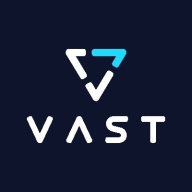

Snowflake and VAST Data compete in the data management solutions category. Snowflake often has an advantage with competitive pricing and robust support, whereas VAST Data offers significant long-term value with its advanced features.
Features: Snowflake offers cloud-native architecture, scalability, and multi-cloud capability, making it ideal for businesses optimizing data warehousing. VAST Data provides cutting-edge architecture, high performance, and reliability, appealing to organizations prioritizing advanced data handling.
Ease of Deployment and Customer Service: Snowflake allows straightforward deployment via extensive cloud infrastructure, enabling rapid integration. VAST Data involves a more intricate setup due to sophisticated hardware needs, though it offers robust customer service.
Pricing and ROI: Snowflake's setup cost is more budget-friendly due to its cloud-based nature, maximizing ROI through operational efficiencies. VAST Data, with a higher initial cost from hardware dependency, offers strong ROI by reducing long-term costs with performance-driven infrastructure.
| Product | Market Share (%) |
|---|---|
| Snowflake | 16.1% |
| Databricks | 9.2% |
| Teradata | 8.5% |
| Other | 66.2% |
| Product | Market Share (%) |
|---|---|
| VAST Data | 6.2% |
| Dell PowerStore | 20.2% |
| NetApp AFF | 16.5% |
| Other | 57.1% |


| Company Size | Count |
|---|---|
| Small Business | 29 |
| Midsize Enterprise | 20 |
| Large Enterprise | 58 |
Snowflake provides a modern data warehousing solution with features designed for seamless integration, scalability, and consumption-based pricing. It handles large datasets efficiently, making it a market leader for businesses migrating to the cloud.
Snowflake offers a flexible architecture that separates storage and compute resources, supporting efficient ETL jobs. Known for scalability and ease of use, it features built-in time zone conversion and robust data sharing capabilities. Its enhanced security, performance, and ability to handle semi-structured data are notable. Users suggest improvements in UI, pricing, on-premises integration, and data science functions, while calling for better transaction performance and machine learning capabilities. Users benefit from effective SQL querying, real-time analytics, and sharing options, supporting comprehensive data analysis with tools like Tableau and Power BI.
What are Snowflake's Key Features?
What Benefits Should You Look for?
In industries like finance, healthcare, and retail, Snowflake's flexible data warehousing and analytics capabilities facilitate cloud migration, streamline data storage, and allow organizations to consolidate data from multiple sources for advanced insights and AI-driven strategies. Its integration with analytics tools supports comprehensive data analysis and reporting tasks.
Innovation to break decades of data storage trade-offs.
We monitor all Cloud Data Warehouse reviews to prevent fraudulent reviews and keep review quality high. We do not post reviews by company employees or direct competitors. We validate each review for authenticity via cross-reference with LinkedIn, and personal follow-up with the reviewer when necessary.